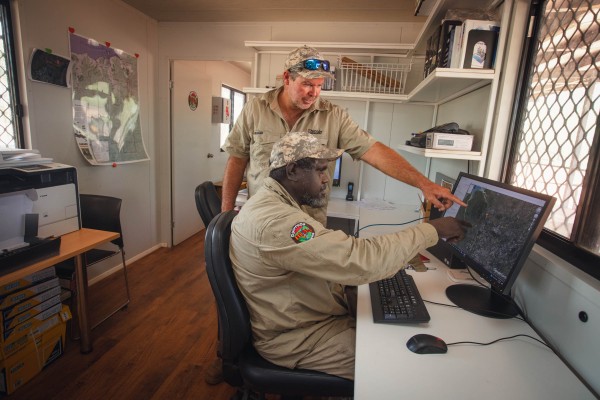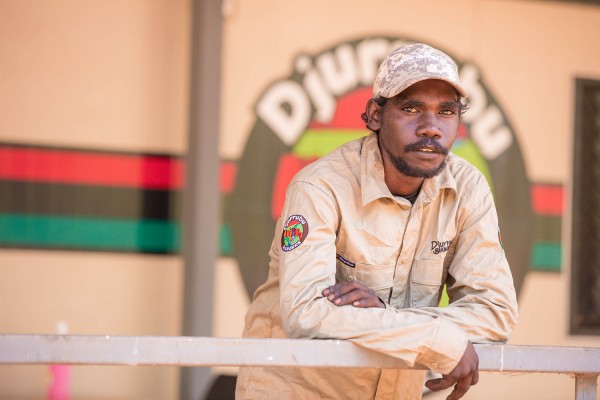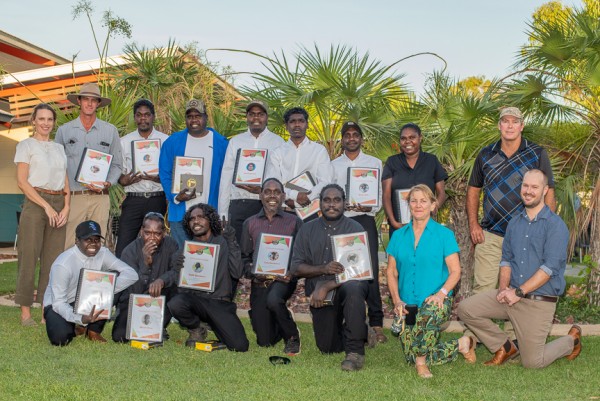First Aboriginal ranger graduates in Jabiru

Members and staff of Gundjeihmi Aboriginal Corporation are proud to announce that fourteen Djurrubu Rangers graduated with their Certificate II in Conservation and Land Management from Charles Darwin University this week.
This is a first for the Djurrubu Rangers and is part Mirarr’s vision for Jabiru as it moves beyond mining and toward regional service provision and local employment.
The graduation ceremony tookplace at Djidbijidbi College on Wednesday, September 22. These qualifications are a huge achievement for the Djurrubu Rangers and staff who have all been working hard towards this outcome. Studying with four training organisations over the past 11 months, the Rangers completed all units on Mirarr Country.
The diversity of the existing Djurrubu Rangers work program provided lots of practical evidence of learning and supported the final assessments in many units. Elective subjects included Indigenous land management studies, fire management, weed management, operating in remote areas and many small engine and driving qualifications.
Djurrubu Rangers is a group of Bininj and Daluk (Aboriginal men and women) working on Country to provide land management services across the Northern section of Kakadu. The group is funded by Gundjeihmi Aboriginal Corporation and works to engage local Bininj in management of land and cultural heritage and to provide ongoing training and employment.

These first-time qualifications for Djurrubu are happening as Jabiru makes the transition from mining town to regional service centre and tourism hub.
The work of Djurrubu Rangers is part of the Mirarr vision for Jabiru to become “nationally recognised for excellence and best practice in Indigenous land management knowledge and employment and supporting Bininj living on country” as well as for “research in North Australian biodiversity, ecology, education, indigenous language, cultural heritage, and archaeology and a gateway for education-based tourism.”


